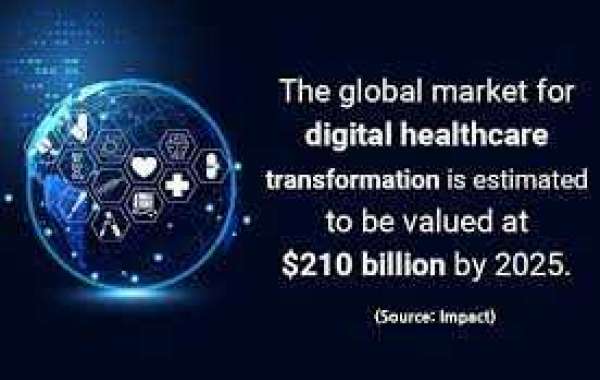According to a survey conducted by SAP and Oxford Economics, nearly 70% of healthcare organisations intend to digitally transform their operations by 2020, with 61% believing that this will increase patient satisfaction.
Most healthcare organisations today have sound digital transformation strategies in place, and their efforts are transforming how they give care by embracing new and innovative methodologies. Hospitals today deliver ambulatory, inpatient, outpatient, and day surgery treatments, patient record access, and telemedicine in a variety of ways thanks to improved workflows and technology-enabled execution. Providers are creating and providing new digital products and services in order to improve clinical results and patient satisfaction while also introducing entirely new business models that can generate revenue. Microsoft, Google, Amazon, and Apple are all vying for a piece of the pie, with varying degrees of success.
As it hurries to develop a digital strategy, consider how the healthcare business is utilising digitalization to reinvent itself:
Using healthcare interoperability to share patient data between healthcare providers and stakeholders across the care continuum in order to provide coordinated collaborative care to all patients.
Thanks to a convergence of IoT, telemedicine, and telehealth technologies, the Internet of Medical Things (IOMT) is here, bringing wearable devices like ECG and EKG monitors into use and playing a critical role in tracking vital medical stats to prevent or manage chronic illnesses, as well as providing virtual care to patients, all while increasing customer satisfaction.
Wearable gadgets can monitor patients in real time, removing the need for them to be admitted to the hospital. Seniors will be able to stay at home while their health is monitored for symptoms of decline thanks to virtual caregiving.
Countries with large populations and limited access to physicians are turning to telemedicine, even as medical appointment wait times and Medicaid acceptance rates continue to grow year after year. Telemedicine is a critical tool that enables patients in remote areas to contact professionals because technology allows the correct healthcare expert to be connected with the right patient, whether face-to-face or through virtual care portals.
Automation, AI, and chatbots are assisting patients in saving money by eliminating doctor appointments and providing self-care instructions as we harness healthcare data and analytics to better treatment plans and patient outcomes.
Chatbots enable AI-powered messaging and speech systems to respond to typical medical questions, and machine learning enhances the chatbot's abilities with each interaction. They also keep track of patient information, make appointments, verify prescriptions, run lab tests, and handle payments.
AI can simulate a human's capacity to analyse evidence and make decisions, making diagnosis faster and more accurate. Body scans aided by artificial intelligence can spot cancer early on, potentially saving lives. Without the need for costly clinical trials, artificial intelligence is being used to investigate chemical and biological interactions, optimise pharmaceutical formulations, and assess the efficacy of new treatments.
Using health data and tracking epidemics, big data analytics is helping to prevent epidemics, save money, and treat diseases by merging demographic data, health, and migration information. It's also utilised to apprehend identity thieves and healthcare scammers.
On the horizon are robots that assist doctors or do surgery for them, as well as robots that aid persons with sensory, cognitive, and movement impairments (which affect roughly 20% of the world's population) and their caregivers healthcare application integration. Humanoid AI-enabled open source hl7 integration engine robots provide companionship and discourse, allowing lonely people to remain independent for longer.
In compliance with the Healthcare Insurance Portability and Accountability Act, the healthcare industry is gradually adopting cloud computing to provide healthcare practitioners and patients with the required access to sensitive patient data (HIPAA).
The digital healthcare business is also aiming to improve its digital marketing strategies by emphasising content quality and the ability to convert visitors into patients by enhancing interaction and giving customers with the information they require.
In a variety of ways, digital healthcare is altering the healthcare environment, demanding a total system overhaul before newer, more efficient ways of delivering healthcare can take hold. Even the insurance industry is embracing digital transformation, with health insurance innovations putting a premium on value rather than quantity. Organizations must not only adopt and leverage the benefits of healthcare digital transformation, but also engage and inspire their employees to learn the skills required to fully utilise these resources.
Prime is familiar with the challenges that the healthcare business faces, and we can help you create a path forward.








